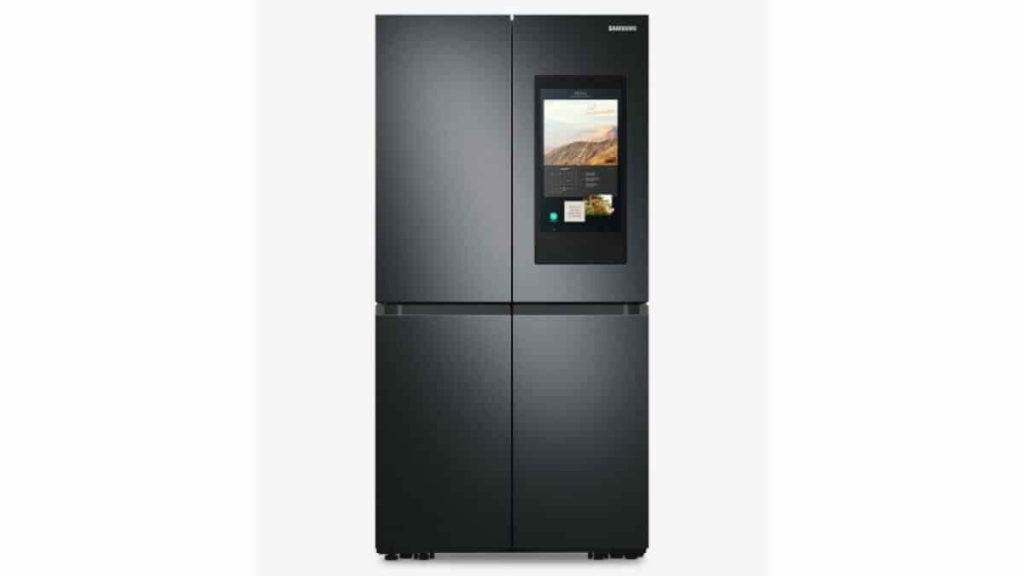In today’s world of constantly evolving technology, it’s no surprise that even our kitchen appliances are becoming smarter. One such example is the smart fridge, a revolutionary kitchen gadget that offers a multitude of advantages and disadvantages. From convenient features like inventory tracking and recipe suggestions to potential privacy concerns and hefty price tags, the pros and cons of a smart fridge are certainly worth examining. Whether you’re a tech enthusiast looking to upgrade your kitchen or simply curious about the latest innovations, this article will provide you with a comprehensive overview of the pros and cons of owning a smart fridge.
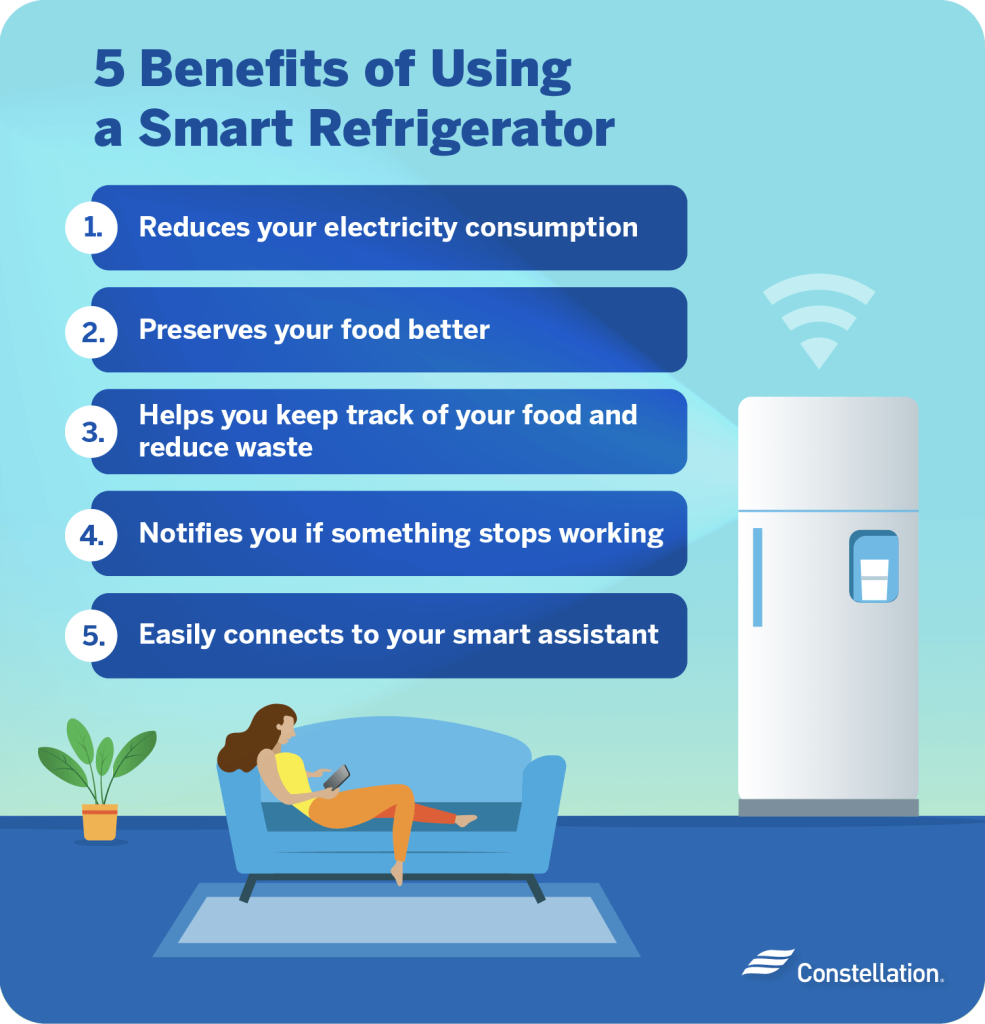
Convenience
Accessibility to information
With a smart fridge, you have easy access to information about your groceries, such as their expiration dates and nutritional value. You can conveniently check this information from your smartphone or the fridge’s built-in display, ensuring that you never waste food or consume anything that is past its prime. This accessibility to information saves you time and effort, as you no longer need to manually search through your fridge or rely on guesswork.
Remote control options
One of the key benefits of a smart fridge is its remote control capabilities. You can use your smartphone to remotely adjust the fridge’s temperature settings, ensuring that your groceries stay fresh and properly chilled even when you’re away from home. This feature is particularly useful when you go on vacation or when unexpected situations arise and you need to make quick adjustments to the fridge’s settings.
Efficient meal planning
A smart fridge offers advanced features that can aid you in efficient meal planning. It can suggest recipes based on the ingredients you have available, helping you make the most out of your groceries and reduce food waste. Additionally, you can use the fridge’s meal planning feature to create shopping lists and keep track of what you need to buy. This streamlines your grocery shopping process and ensures that you always have the necessary ingredients for your planned meals.
Energy Efficiency
Smart energy-saving features
A major advantage of a smart fridge is its energy-saving capabilities. These appliances are equipped with sensors and algorithms that optimize energy consumption based on your usage patterns. For example, if the fridge senses that it is frequently opened during certain hours of the day, it can automatically adjust the temperature to minimize energy wastage. This smart energy-saving feature not only reduces your carbon footprint but also helps you save on your electricity bills.
Improved temperature control
Maintaining optimal temperatures in your fridge is crucial for food freshness and safety. With a smart fridge, you have precise temperature control at your fingertips. You can easily monitor and adjust the fridge’s temperature through the accompanying app or the fridge’s interface. This ensures that your food stays fresh for longer and minimizes the risk of spoilage, providing you with peace of mind and saving you money by reducing the amount of food you have to discard.
Reduced energy consumption
In addition to smart energy-saving features, smart fridges are designed to be more energy-efficient compared to traditional refrigerators. They utilize advanced insulation and compressor technologies that help minimize energy loss and optimize cooling performance. By investing in a smart fridge, you not only contribute to a greener environment but also enjoy long-term savings on your energy bills.
Connectivity
Integration with other smart devices
One of the major advantages of a smart fridge is its ability to seamlessly integrate with other smart devices in your home. Through connectivity protocols like Wi-Fi and Bluetooth, you can sync your fridge with your smart home ecosystem. This integration allows for a range of possibilities, such as receiving notifications on your smartwatch when your groceries are running low or controlling your fridge through voice commands via a smart speaker.
Easy sharing of data and tasks
A smart fridge makes it effortless to share data and tasks with your family members or housemates. Through the shared app or cloud-based platforms, everyone can access and update the grocery list, add recipe suggestions, or receive notifications about food expiration dates. This streamlines household management and ensures that everyone is on the same page when it comes to grocery shopping and meal planning.
Smart home automation
By connecting your smart fridge to other devices in your home, you can leverage advanced automation capabilities. For example, your fridge can communicate with your oven to preheat automatically when you’re ready to cook a recipe. It can even sync with your calendar to remind you of upcoming events and suggest meal ideas based on your schedule. Smart home automation simplifies your daily routine and enhances your overall convenience.
Food Management
Inventory tracking and expiration alerts
One of the most significant benefits of a smart fridge is its ability to track your inventory and send you expiration alerts. The fridge’s internal cameras, RFID sensors, or weight sensors can monitor the items inside and keep a real-time inventory. This allows you to know exactly what you have in stock, preventing unnecessary purchases and reducing food waste. Additionally, the fridge can notify you when certain items are nearing their expiration dates, ensuring that you consume them in a timely manner.
Recipe suggestions and meal inspiration
If you often find yourself lacking inspiration when it comes to meal planning, a smart fridge can be a valuable tool. By analyzing the ingredients in your fridge, it can suggest recipes and meal ideas that match your dietary preferences and restrictions. This feature not only saves you time but also encourages you to explore new culinary creations and diversify your diet.
Nutrition and diet tracking
Maintaining a healthy lifestyle can be made easier with the help of a smart fridge. Many smart fridges offer features that allow you to track the nutritional information of the foods you consume. This helps you monitor your calorie intake, track specific nutrients, and align your diet with your health goals. By having this information readily available, you can make more informed choices about what you eat and stay on track with your nutrition plans.
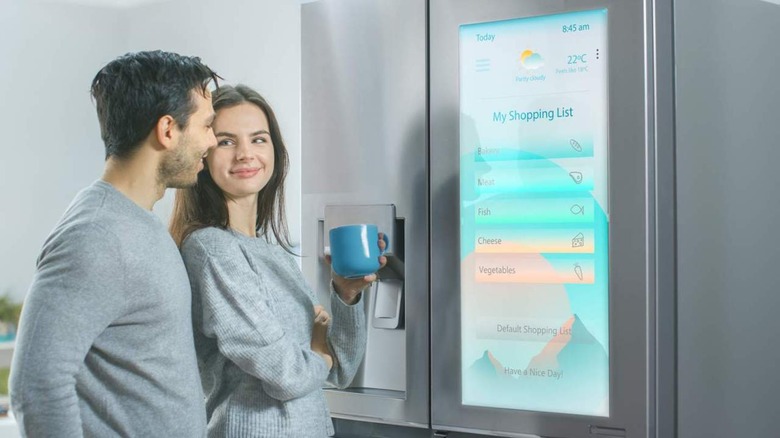
Cost
Initial high investment
One of the main drawbacks of a smart fridge is its initial high cost compared to traditional refrigerators. The advanced technologies and connectivity capabilities incorporated into smart fridges contribute to their higher price tag. However, it’s essential to consider the long-term savings and convenience benefits that a smart fridge offers when evaluating the cost.
Potential additional expenses
Beyond the initial investment, there may be potential additional expenses associated with owning a smart fridge. Some manufacturers require subscription fees to access certain features or to utilize cloud-based services. Additionally, if you experience any issues or malfunctions, the cost of repairs or replacement parts for a smart fridge might be higher compared to conventional refrigerators. It’s essential to factor in these potential expenses when considering the overall cost of owning a smart fridge.
Maintenance and repairs
Smart fridges, like any other electronic device, require regular maintenance and occasional repairs. The complexity of the technology incorporated into these appliances may result in higher maintenance costs. It’s important to consider the warranty coverage provided by the manufacturer and to familiarize yourself with any maintenance requirements or recommended servicing procedures. Being proactive about maintenance can help minimize unexpected expenses down the line.
Privacy and Security
Data collection and privacy concerns
With smart fridges collecting and analyzing data about your food consumption habits, there are potential privacy concerns to be aware of. It’s crucial to thoroughly review the privacy policy of the manufacturer and understand how your data will be used and protected. To mitigate privacy risks, opt for reputable brands that prioritize data security and offer transparent privacy practices.
Vulnerabilities and hacking risks
As with any internet-connected device, smart fridges may be vulnerable to hacking attempts and security breaches. It’s important to choose a smart fridge from a trusted manufacturer that regularly releases security updates and patches any discovered vulnerabilities promptly. Additionally, taking necessary precautions, such as configuring strong and unique passwords, can help minimize the risk of unauthorized access to your smart fridge and the data it stores.
Dependency on internet and cloud services
Smart fridges rely heavily on internet connectivity and cloud services to function properly. This dependency means that if your internet connection goes down or if the cloud service experiences downtime, you may experience limitations in the functionality of your smart fridge. It’s crucial to consider the reliability of your internet service provider and the track record of the cloud service used by the manufacturer before investing in a smart fridge.
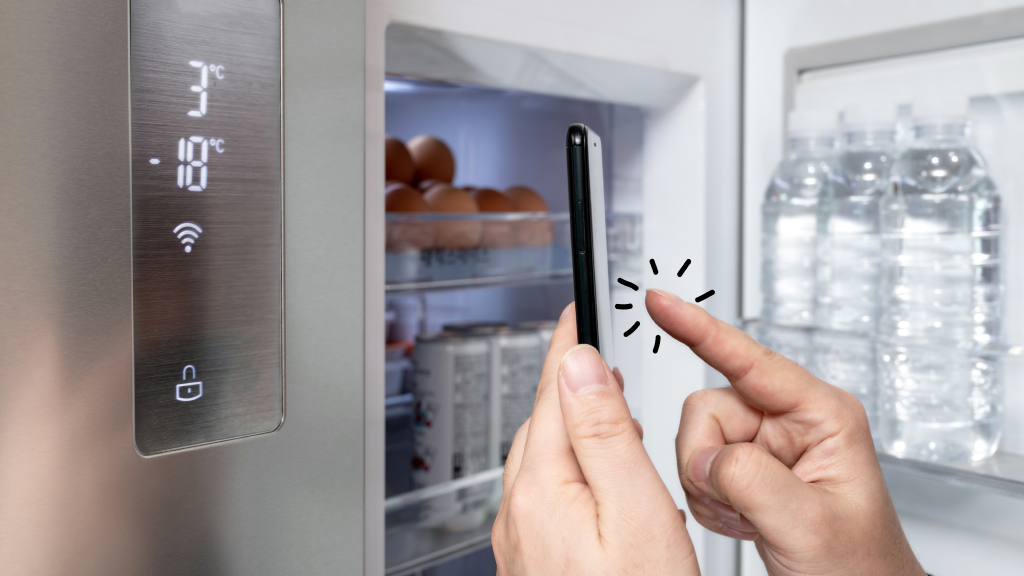
Learning Curve
Complex initial setup
Setting up a smart fridge can be more complex compared to traditional refrigerators. You may need to connect the fridge to your home network, download and configure the accompanying app, and sync it with your other smart devices. While manufacturers strive to provide user-friendly setup processes, it’s important to allocate sufficient time to familiarize yourself with the instructions and seek assistance if needed. However, once the initial setup is complete, operating the smart fridge becomes intuitive and straightforward.
Familiarizing with app features
To fully leverage the capabilities of a smart fridge, it’s essential to familiarize yourself with the features and functionalities provided by the accompanying app. This may involve exploring various settings, understanding how to utilize the recipe suggestion feature, or learning how to customize your preferences. While it may take some time to become comfortable with the app, the app becomes an indispensable tool in maximizing the convenience and benefits of your smart fridge.
Adjusting to new routines and habits
Introducing a smart fridge into your daily life requires adjusting to new routines and habits. For example, you need to get into the habit of updating the grocery list on the app or checking the expiration alerts regularly. Adapting to these changes may take some time, but as you embrace the efficiency and organization that a smart fridge brings, it becomes a natural part of your routine.
Reliability
Potential system malfunctions
Like any complex appliance, smart fridges are susceptible to system malfunctions. The advanced technologies and connectivity features increase the complexity of the appliance, leading to a higher likelihood of potential issues. It’s important to choose a smart fridge from a reputable manufacturer that offers reliable customer support and comprehensive warranty coverage. This way, you can address any malfunctions promptly and minimize disruption to your daily life.
Software bugs and updates
As with any software-driven device, smart fridges may experience bugs or glitches from time to time. The manufacturer’s commitment to releasing regular software updates is crucial to addressing these issues and improving the overall performance of the fridge. It’s advisable to opt for a smart fridge from a manufacturer with a track record of delivering timely software updates and actively addressing customer feedback.
Dependency on electricity and internet
Smart fridges rely heavily on a stable electricity supply and internet connectivity to function as intended. Power outages or fluctuations, as well as internet service disruptions, can limit the features and capabilities of your smart fridge. It’s important to consider the reliability of your power supply and internet service provider in your decision to invest in a smart fridge. Additionally, having backup power solutions, such as a generator or uninterruptible power supply, can help mitigate the impact of power outages on your smart fridge’s performance.
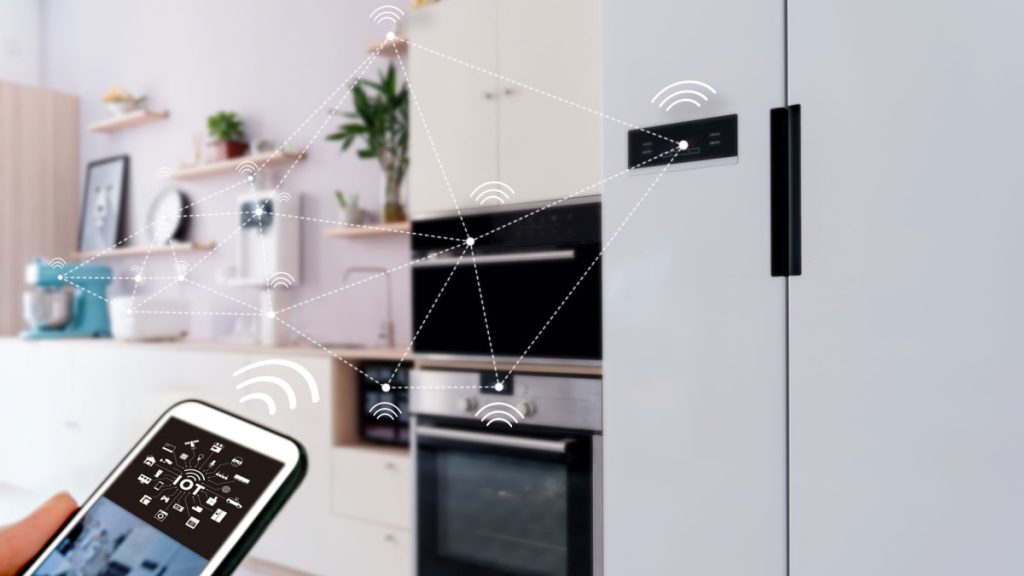
Design and Flexibility
Space limitations
Smart fridges often come with additional features and technologies that may take up more space compared to traditional refrigerators. It’s crucial to consider the available space in your kitchen and ensure that the smart fridge you choose fits comfortably without causing any inconvenience or obstruction. Measuring your kitchen space and reviewing the specifications of the smart fridge are essential steps in ensuring a successful integration into your kitchen layout.
Compatibility with kitchen decor
The design aesthetics of your kitchen are an important consideration when choosing a smart fridge. While smart fridges are available in various styles and finishes, it’s essential to select one that complements your existing kitchen decor. You want your smart fridge to seamlessly blend into your kitchen environment and enhance the overall visual appeal of the space, rather than stand out as an eyesore.
Customization options
The level of customization offered by different smart fridges can vary. Some models allow you to change the interface display, adjust the lighting settings, or even choose from a variety of interchangeable panels to match your personal preferences. Considering the available customization options can help personalize your smart fridge and make it more aligned with your lifestyle and design choices.
Obsolescence
Rapid technological advancements
The field of smart home technology is rapidly evolving, with new advancements and features being introduced regularly. This poses a challenge in terms of potential obsolescence for smart fridges. As new technologies emerge, your smart fridge may become outdated in terms of features and functionalities. It’s important to stay informed about the latest trends and advancements in the industry before making a purchase to ensure that your smart fridge remains relevant for an extended period.
Compatibility with future devices
As the smart home ecosystem expands, it’s crucial to consider the compatibility of your smart fridge with future devices. Ensuring that the fridge supports widely adopted connectivity standards, such as Wi-Fi and Bluetooth, increases the likelihood of seamless integration with future smart devices. It’s advisable to choose a smart fridge from a manufacturer known for their commitment to backward compatibility and their ability to adapt to evolving technologies.
Difficulty in upgrading components
Unlike traditional refrigerators, upgrading the components of a smart fridge may be more complex or even limited. Depending on the model, it may not be feasible or cost-effective to upgrade the internal hardware or add new features to an existing smart fridge. Considering the lifespan and potential future requirements is important when choosing a smart fridge, as it affects the longevity and adaptability of the appliance in relation to your evolving needs.
In conclusion, a smart fridge offers a range of benefits in terms of convenience, energy efficiency, connectivity, food management, and design. From easily accessing information about your groceries to enjoying improved energy savings and seamlessly integrating with other smart devices, a smart fridge enhances your everyday life in numerous ways. However, it’s crucial to be aware of the potential drawbacks, such as the initial high investment, privacy and security concerns, and the need to adjust to new routines. By considering these factors and evaluating your specific needs and priorities, you can make an informed decision about whether a smart fridge is the right choice for you.
